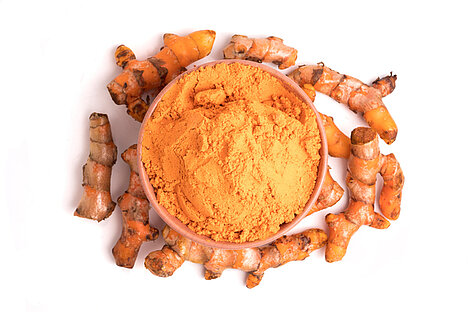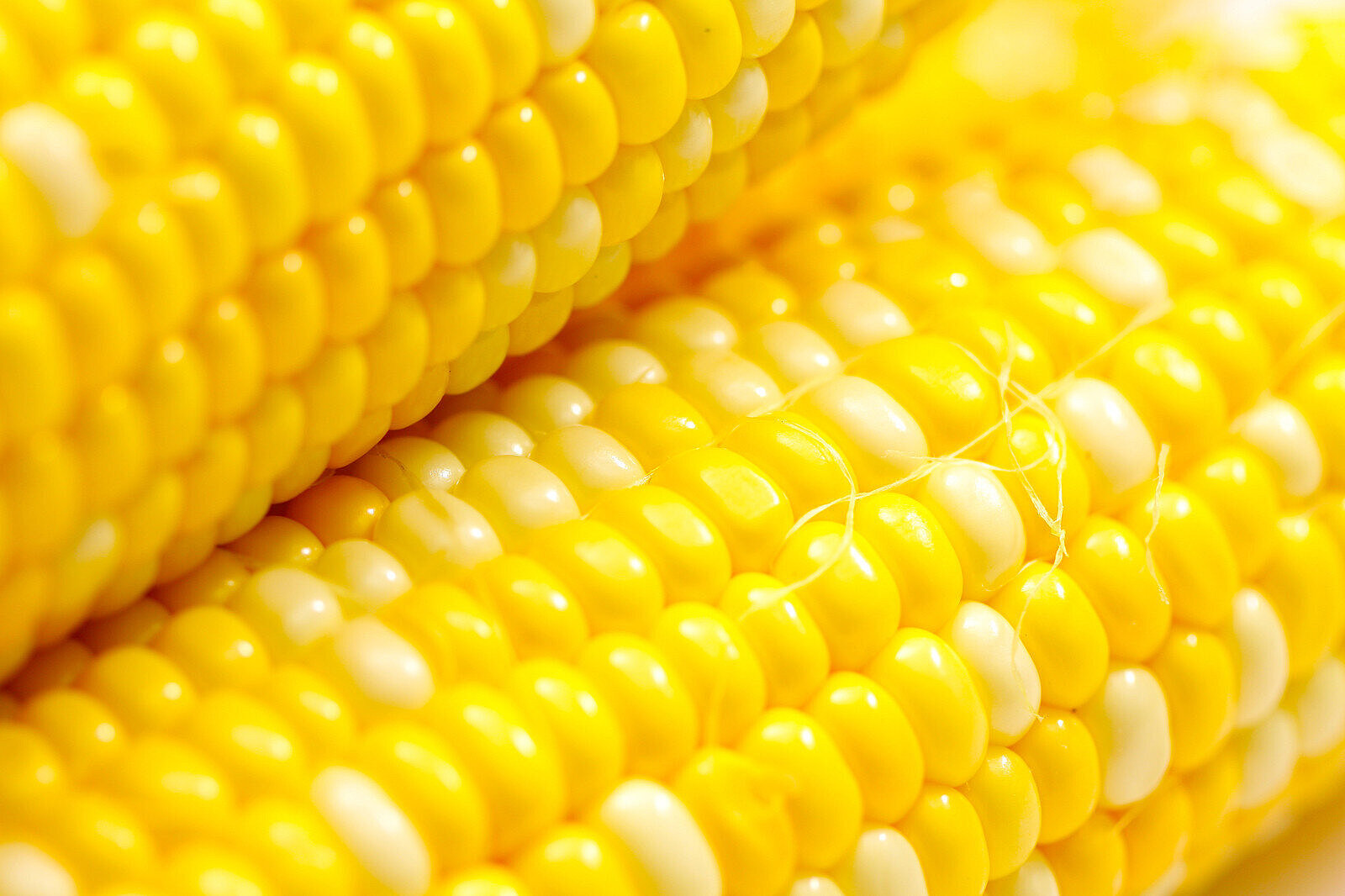Curcumin

What is curcumin and how does it work?
Curcumin is the main component of turmeric, a spice that is mainly used in Indian cuisine. Turmeric gives many dishes a yellow color and a spicy taste. However, curcumin is not only a colorant, but also an active ingredient with many health benefits. Curcumin has a strong antioxidant effect, which means it protects cells from free radicals that can lead to cell damage and ageing. Free radicals are caused by various factors such as stress, pollution or disease. Curcumin can therefore help to keep cells healthy and strengthen the immune system.
Curcumin also has an anti-inflammatory effect, i.e. it can reduce or prevent inflammation in the body. Inflammation is a natural response of the body to stimuli such as injury or infection. It is important for healing and the body's defense against pathogens. However, inflammation can also become chronic and lead to various diseases such as arthritis, allergies or cancer. Curcumin can therefore help to alleviate or prevent chronic inflammation.
How can curcumin help dogs?
Curcumin can help dogs with or prevent various diseases. For example, curcumin can relieve joint pain and stiffness in dogs with arthritis. Curcumin can also help dogs with skin problems such as itching or eczema by reducing inflammation of the skin. Curcumin can also help dogs with gastrointestinal problems such as diarrhea or bloating by aiding digestion and protecting the mucous membranes. Curcumin can also help dogs with liver problems by supporting liver function and promoting detoxification.
Curcumin can not only alleviate existing complaints, but also have a preventative effect. For example, curcumin can reduce the risk of cancer in dogs by inhibiting the growth of cancer cells and promoting apoptosis (programmed cell death). Curcumin can also reduce the risk of cardiovascular disease in dogs by regulating blood pressure and cholesterol levels and inhibiting blood clotting. Curcumin can also reduce the risk of dementia in older dogs by improving brain function and preventing the formation of amyloid plaques.
What are the benefits of curcumin for dogs?
Curcumin can help dogs with or prevent various diseases. Some examples are
- Osteoarthritis: Curcumin can relieve pain and stiffness in dogs with osteoarthritis and improve mobility. It can also slow down cartilage degradation and promote joint health.
- Skin problems: Curcumin can relieve skin inflammation, itching or eczema in dogs. It can also speed up wound healing and reduce the risk of infection.
- Gastrointestinal complaints: Curcumin can relieve gastritis, diarrhea or bloating in dogs. It can also inhibit the growth of harmful bacteria in the intestines and support the intestinal flora.
- Cancer: Curcumin can reduce the risk of cancer in dogs or slow down the progression of existing tumors. It can also alleviate the side effects of chemotherapy or radiation and improve quality of life.
- Liver disease: Curcumin can prevent or treat liver diseases such as fatty liver, hepatitis or liver cancer in dogs. It can also improve liver detoxification and regulate metabolism.
What are the side effects of curcumin in dogs?
Curcumin is a natural active ingredient with few side effects. Nevertheless, there are a few points to bear in mind,
Curcumin can lead to gastrointestinal complaints, liver damage and blood clotting disorders in dogs. Curcumin can also influence the effect of medication.
Curcumin is the main component of turmeric and has strong antioxidant and anti-inflammatory properties. In dogs, curcumin can help with arthritis, skin problems, gastrointestinal disorders, liver disease and the prevention of cancer and cardiovascular disease. However, there are some potential side effects, including gastrointestinal discomfort, liver damage and interference with medications.
If you notice any signs of hypersensitivity or poisoning in your dog, you should see your vet immediately. We are not a substitute for a vet, but we try to be as accurate as possible. Every dog reacts differently and we recommend you get a second opinion or consult your vet if in doubt.
Stay healthy and take good care of your four-legged friend!😊
Similar to Curcumin
Paprika extract is a concentrate made from the fat-soluble components of peppers. These mainly include the colorants capsanthin and capsorubin, which belong to the carotenoids, as well as capsaicin,...
Lutein can improve vision in dogs, especially in older dogs suffering from age-related macular degeneration. This condition leads to a loss of central visual acuity and can result in blindness....
Dogs can convert beta-carotene into active vitamin A and thus cover their need for this vitamin. Vitamin A is important for the dog's eyesight, skin health and immune system, among other things....
Annatto is an orange-red food coloring or spice obtained from the seeds of the achiote tree (Bixa orellana). The achiote tree grows in tropical regions in South and Central America. Annatto has...



